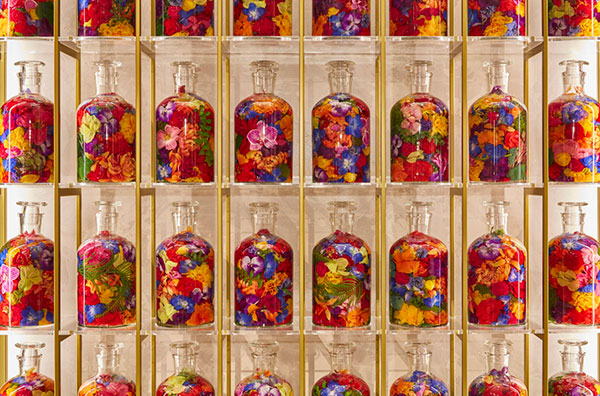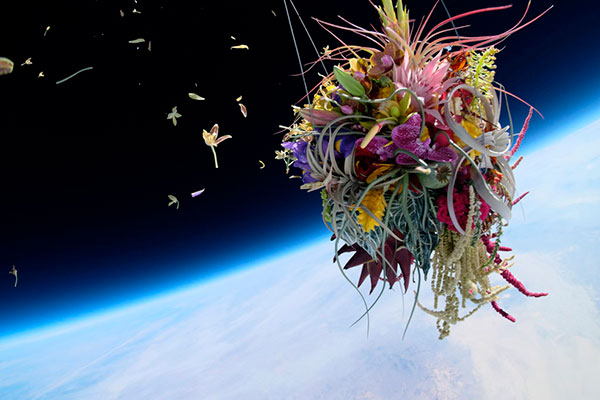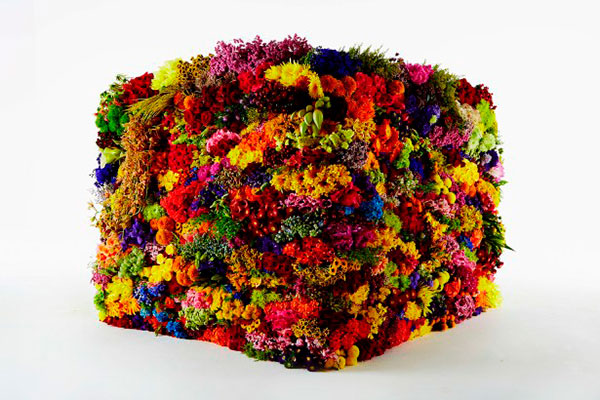


Azuma Makoto is a Japanese florist born in 1976. His youth and stark vision, both regarding life and its relationship to death, and his perspective on plants in relation to rock music, make him a contemporary example of art in a state of total effervescence. He is considered the creator of botanical sculpture, from giant arrangements to suspended sculptures. Plants, rock, and bonsai flying in space.
Makoto works in her Tokyo studio, a minimalist, industrial space in a basement that bears no resemblance to traditional flower shops. What Makoto creates, though related to tradition, is art.
His works transcend the merely ontological to place the contemplation of life and death in a brief span of time on the side of metaphysics, taking into account, as Makoto says, that the time of one day for a plant is equivalent to ten years for a human being.
Makoto identifies with the aesthetics of Mono-No-Aware, a concept from Japanese philosophy and literary criticism that could be translated as "empathy with the ephemeral" or "empathy for things that vanish." Thus, death is a natural process of life.
The most dramatic example in her work is the installation Burning Flowers, a tribute to those who are no longer with us, but also a respect for living beings: plants and flowers. She also compares the qualities of flowers to rock music: no two chords are ever the same, no two petals are ever alike, and everything is susceptible to the emotional state in which it is approached. She became obsessed with flowers and never worked in any other field again.



0 comments